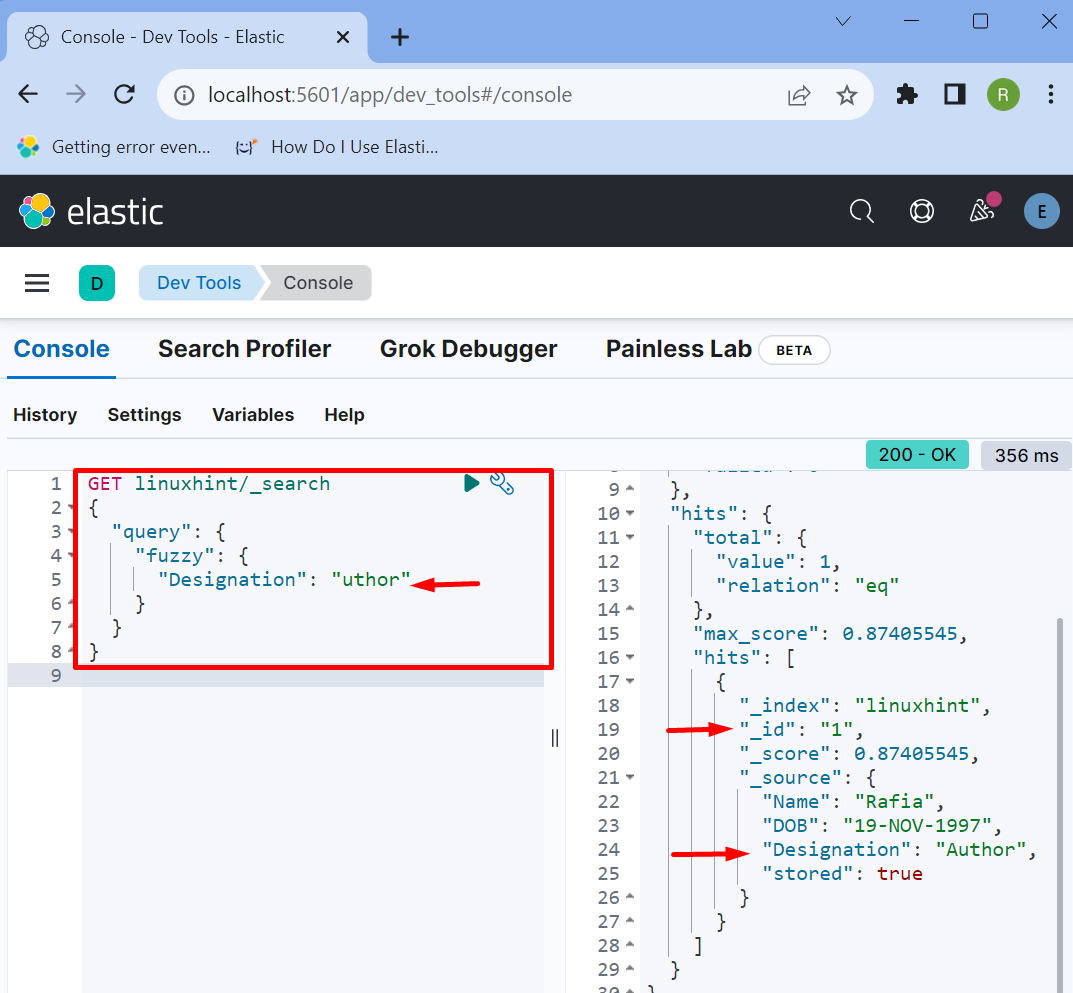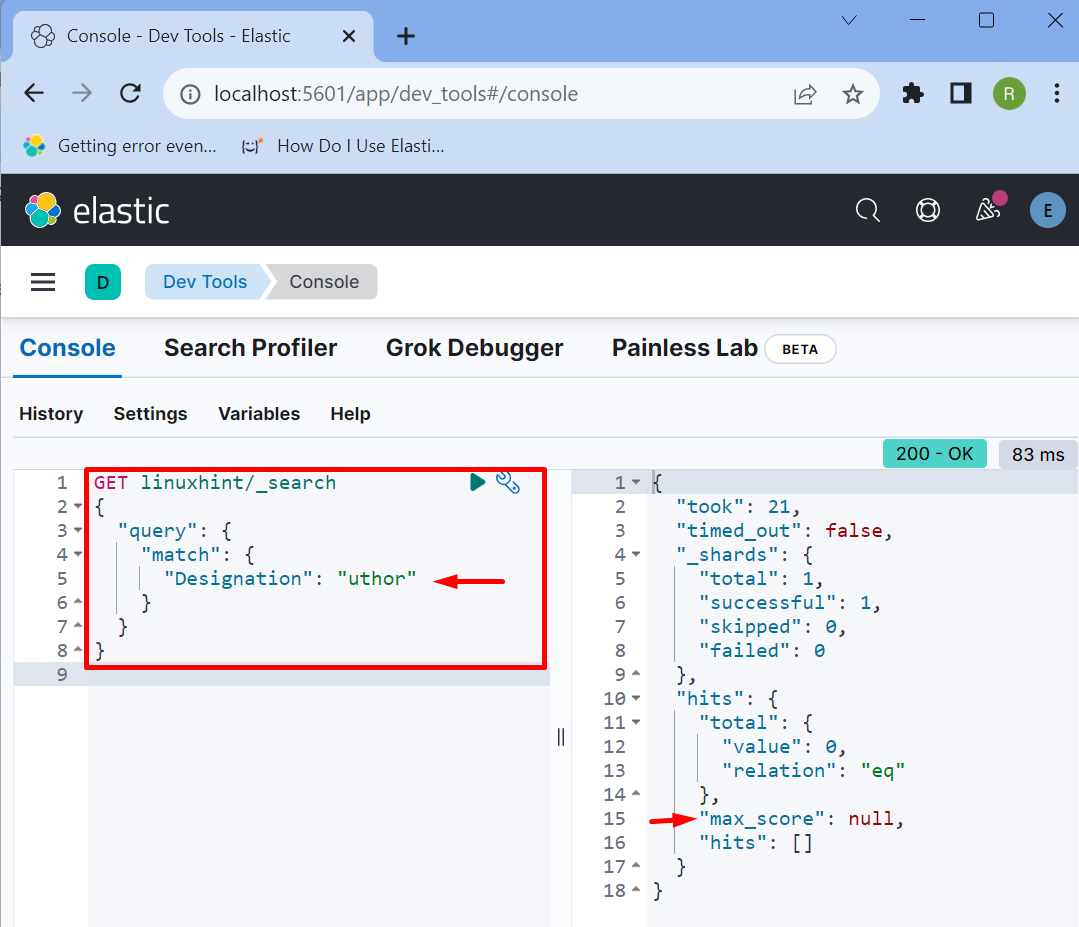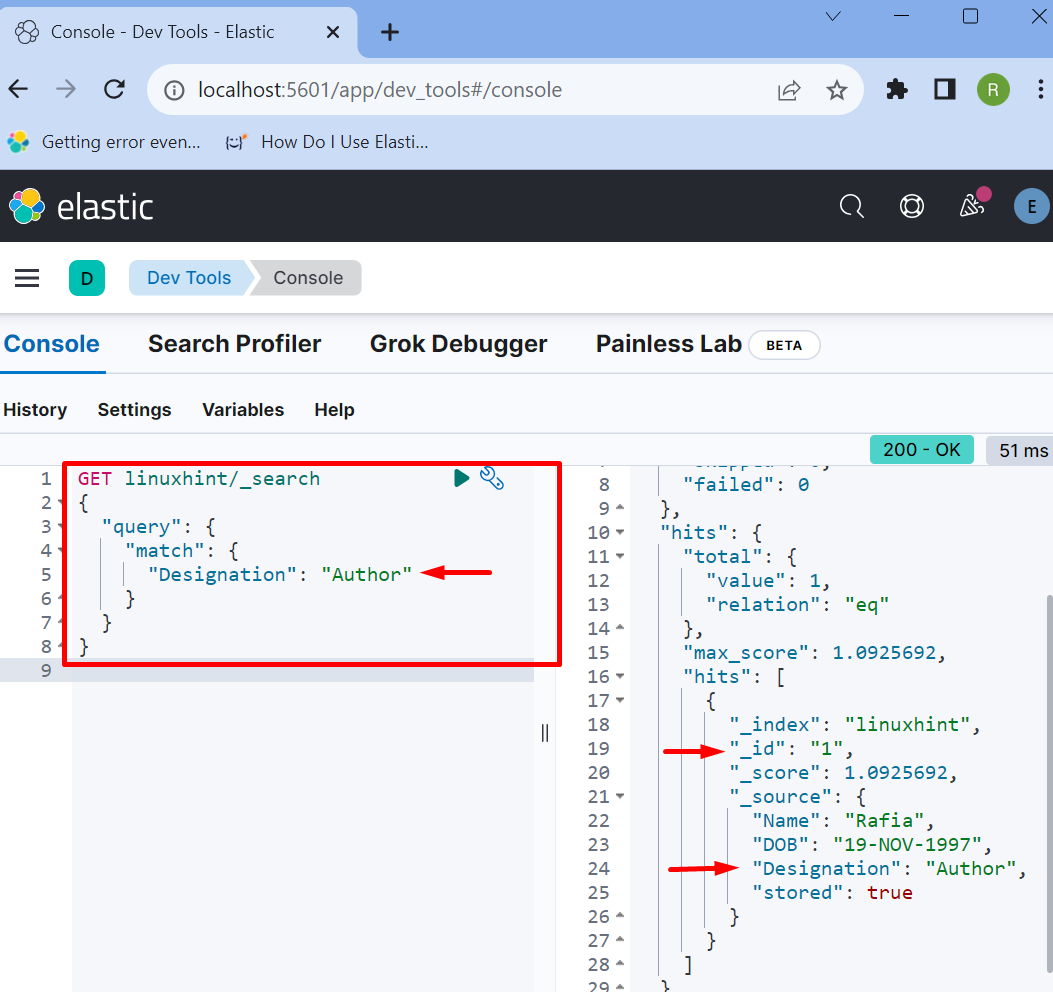This post demonstrates on:
What is a “fuzzy” Query?
The “fuzzy” query is a Query DSL that performs search other operations such as changing the character, inserting the character, or removing the character based on “Levenshtein edit distance” distance. It usually finds the difference between terms and returns the result in a document that is nearer or almost similar to the searched term.
What is a “match” Query?
The “match” query is another type of Query DSL that is used to match or search the given data such as string, number, or text. It is a “full-text” based query and performs a full-text search and returns the results that exactly match the searched term. If the term does not match the search term it will return a null string or false.
Difference Between “fuzzy” and “match” Query
Both “fuzzy” and “match” queries are used for searching purposes. The key difference between these two queries is that the “fuzzy” query makes a fuzzy search and returns a result that is similar to or close to the searched term. In contrast, the “match” query returns the results that exactly match the searched term.
For better understanding, follow the below-provided examples:
Example 1: Fuzzy Search Using “fuzzy” Query
Suppose, the user wants to find the document that has the “Designation” value as “Author”. Let’s make a search that finds a closer match. To do so, utilize the “fuzzy” query to search a document that has a “Designation” value equal to or closer to “uthor”:
{
"query": {
"fuzzy": {
"Designation": "uthor"
}
}
}
The below output shows that the document having id “1” has a “Designation” value close to the “uthor” searched term:
But if the above example is applied by the “match” query, it will send a “null string” as it returns the exact matching term.
Example 2: Fuzzy Search Using “Match” Query
Let’s take the same example and apply the “match” query to find the document having the “Designation” value as “uthor”:
{
"query": {
"match": {
"Designation": "uthor"
}
}
}
The below output shows that the “match” query does not find closer results and returns a “null” string:
Let’s modify the searched value from “uthor” to “Author” and run the “match” query as shown below:
{
"query": {
"match": {
"Designation": "Author"
}
}
}
Here, you can see the “match” query returns the document having id “1”. Because document 1 exactly matches the searched terms:
That is all about the difference between a “fuzzy” query and a “match” query.
Conclusion
The “fuzzy” query is used to make a fuzzy search and returns the results that closely match the searched term. However, the “match” query does not support fuzzy search and returns the results that exactly match the searched term. This blog has illustrated the difference between fuzzy query and match query.



